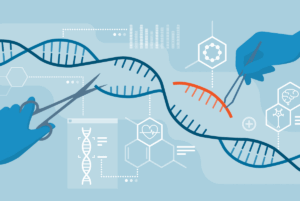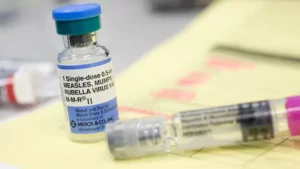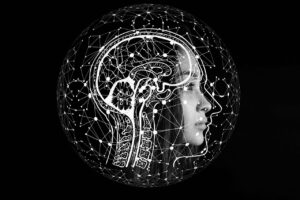According to many articles, designer babies is a term used to refer to babies who are developed outside a human body and come from embryos that are genetically modified in vitro. In 2018, Chinese doctors, including He Jiankui, successfully genetically modified human embryos after many failed attempts. Scientific communities around the world, along with the majority of the United States, believe this act was a violation of ethics.
But now many argue and wonder, is it right or wrong to alter a human’s life so drastically?
The majority of people agree that using genetic modification on babies to alter their appearance or intelligence is unnecessary, but using genetic modification for a baby’s future health is appropriate and necessary. Numerous people object to genetic enhancement for moral and ethical reasons. Gale, a Cengage Company, published article “Designer Babies” in 2021 that states, “…scientists should not “play God” by interfering with biological processes and changing the natural progression of human evolution.” In the article published in 2019, “Just Because We Can Create Genetically Modified Babies Doesn’t Mean We Should,” Anderson states that “it isn’t hard to fathom how these new technologies could be deployed in the hands of racist, eugenicist, or genocidal governments of the future.”
Furthermore, a poll conducted in 2018 by the Pew Research Center found that 80 percent of US adults believe making the baby more intelligent is taking medical technology too far, while 58 percent of US adults believe inequality will increase because this option will only be available for the wealthy. This same poll also states 72 percent of US adults believe using this technology to treat a serious disease or condition the baby would have at birth is an appropriate use of this experimental science, while 60 percent believe using this technology to reduce risk of a serious disease that could occur over their lifetime is another acceptable use of this technology.
How do scientists reduce or prevent serious disease or conditions?
Gale, a Cengage Company, published the article “Designer Babies” in 2021 that states, “one reproductive technology used to screen embryos, preimplantation genetic diagnosis (PGD), involves extracting a cell from an IVF embryo to test for specific genetic defects that increase the risk of developing certain inherited diseases, such as cystic fibrosis, hemophilia, sickle-cell anemia, or Tay-Sachs disease.” Although a designer baby could have above-average intellect, attractiveness, athletic ability, increased muscle mass, expanded cardiovascular capacity, etc, using genetic modification for purposes of self improvement could even have side effects or unforeseen risks. The same article continues, “germline modification is so new and untested, it may expose future generations to unforeseen risks.”
Although most people disagree with using genetic modification to change appearance or intellect, Transhumanists believe that many people take actions to improve themselves as adults; people wear makeup to appear more attractive, exercise to increase their physical fitness, and pursue education to increase their intelligence. Society generally supports these efforts and sees self-improvement as a goal, so supporters argue that genetic enhancement may enjoy greater public acceptance as the technology continues to develop.
What do you think about designer babies? Do you think using this technology is unethical or enhances richer people for the better? Would you design your baby? Or would you limit this science for illnesses?











